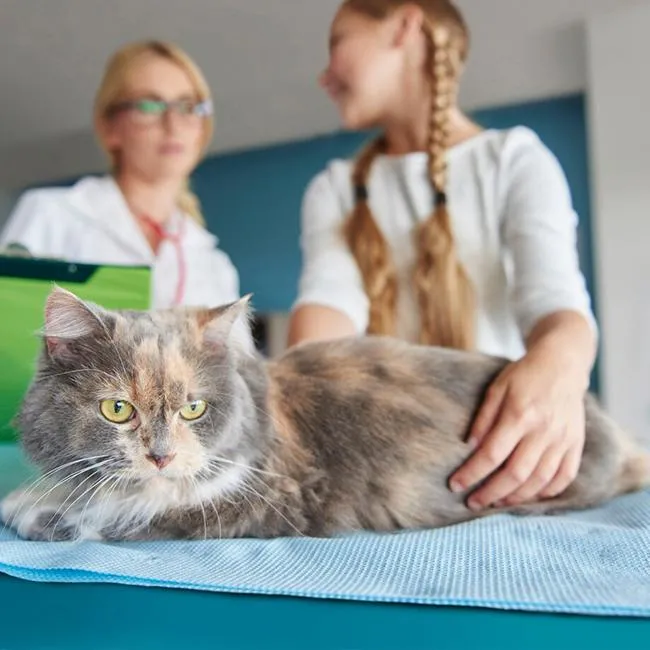Cat Surgery & Hospital Services in Stockton, CA
What to Expect and How to Care for Your Feline Friend
Cat surgery is sometimes necessary to help your pet live a healthier, longer life. Whether your cat needs a routine procedure, like spaying or neutering, or a more complex surgery, our veterinary team is here to provide the highest level of care. Here, we’ll walk you through common types of cat surgeries, what to expect before and after, and how to prepare and care for your pet during the recovery period.
Types of Cat Surgery
Spaying and Neutering: These are the most common surgeries for cats, usually performed to prevent unwanted litters and reduce health risks related to the reproductive system.
Dental Surgery: Cats can suffer from periodontal disease and other dental issues that require extraction or cleaning procedures.
Soft Tissue Surgery: This includes procedures for removing tumors, treating wounds, or addressing other conditions affecting the skin, muscles, or internal organs.
Orthopedic Surgery: In cases of fractures or joint issues, orthopedic surgery may be necessary to restore mobility and reduce pain.
Emergency Surgery: Sometimes, cats require urgent procedures, such as those to treat blockages or internal injuries.
Preparing Your Cat for Surgery
Pre-Surgery Exam: A thorough examination, sometimes with bloodwork, is done to ensure your cat is healthy enough for anesthesia and the procedure itself.
Fasting: Your vet will usually ask you to withhold food for 8-12 hours before surgery to reduce the risk of complications with anesthesia.
Comfort at Home: Prepare a quiet, comfortable area for your cat to recover after the surgery.
What to Expect After Surgery
After surgery, your cat may be groggy from anesthesia and need extra rest. Some cats may experience mild disorientation, which usually passes within 24 hours. Here are some tips to help them recover smoothly:
Monitor Your Cat: Watch for signs of pain, swelling, or unusual behavior, and follow up with the vet as recommended.
Limit Activity: Cats need to rest to heal, so keep them indoors and limit climbing, jumping, or playing for at least a week.
Administer Medications: If prescribed, be sure to follow the vet’s instructions for any pain relief or antibiotics.
Helping Your Cat Heal: Post-Surgery Care
Keep the Wound Clean: Follow any wound care instructions your vet provides, such as gently cleaning the incision area if needed.
E-Collar Use: To prevent licking or biting at the incision, your cat may need an Elizabethan collar (e-collar).
Hydration and Diet: Ensure your cat has access to water and offer food as recommended by the vet, starting with small, light meals.
Follow-Up Appointments: Attend any scheduled follow-up visits to ensure the incision is healing properly and to address any concerns.

Testimonial
What They Say

Was looking for a new Vet near me in Stockton and very happy with Walker Vet Hospital! Customer service, informative, and compassionate with staff and doctors. Give a 10 out of 10. Taking all three of my dogs there happily.


Rae W.

Good value and knowledgeable. No waiting most of the time. Always 2-3 doctors at a time and weekend care available which is appreciated. All of our three dogs been going to Walker Vet in Stockton for some time now. Never any complaints.


Nick G.

Review Us!
Visit our Google review page to share your feedback

Review Us!




